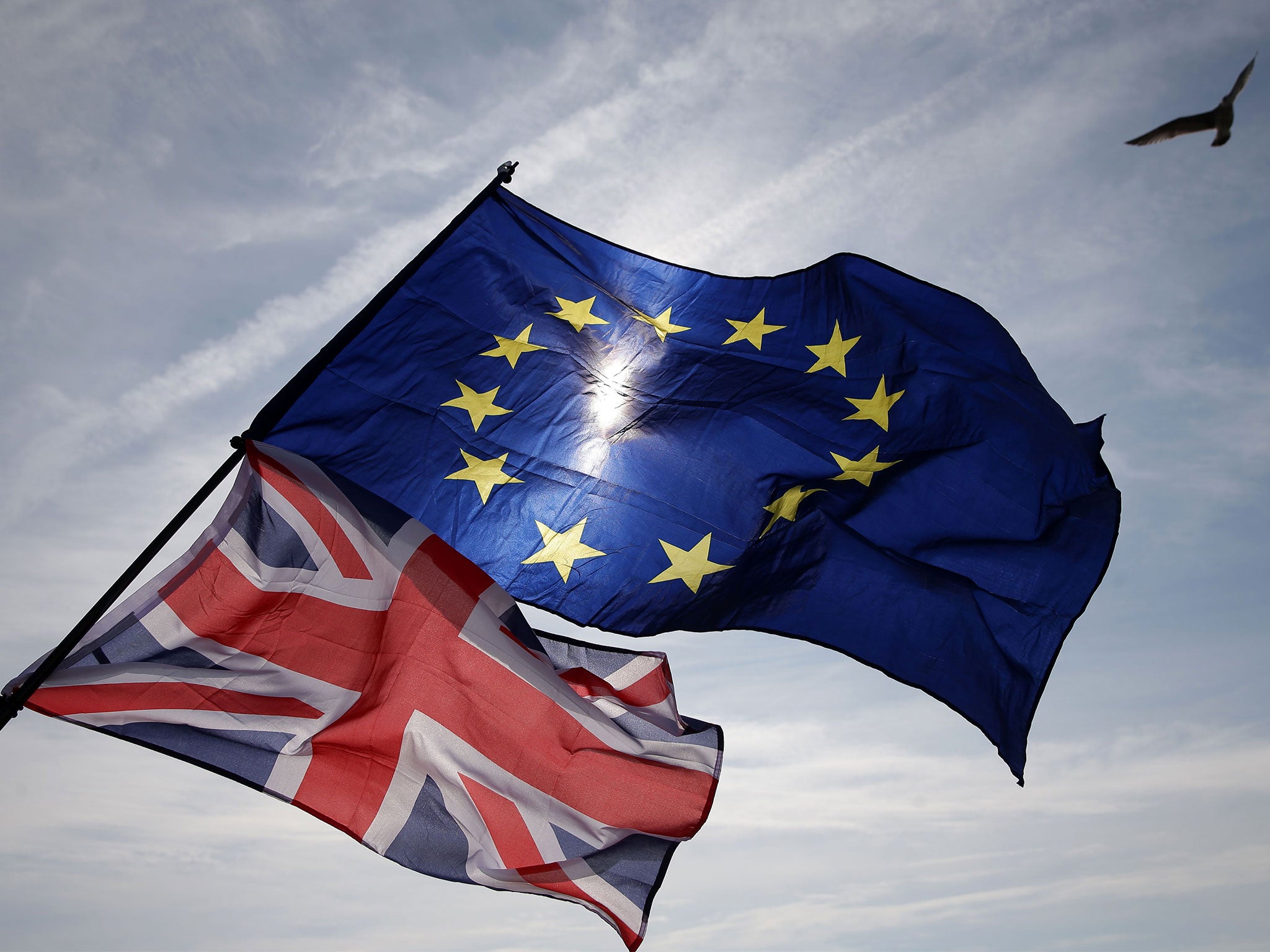Brexit could cut support for victims of abuse and minority groups, human rights charities warn
Exclusive: Campaigners say marginalised and disadvantaged groups could lose out on crucial support when Britain departs from EU unless Government commits to replacing funds

Victims of abuse and minority groups could see support cut after 2020 due to the absence of EU funding following Brexit, human rights charities have warned.
A report by the Equality and Diversity Forum, a network of human rights organisations in the UK, says the Government has made no commitment to replace the billions of pounds of EU money which currently supports some of the most marginalised and disadvantaged people across the UK.
Disabled people, domestic abuse victims and vulnerable migrants are among the groups at risk of losing out on crucial support when Britain leaves the EU, as the funds will cease to be accessible to projects supporting them.
In the Conservative Party manifesto, Theresa May pledged to create a “UK Shared Prosperity Fund”, which it said would replace the money local areas currently receive from the EU. But ministers have yet to consult on and determine the scope and focus of that fund.
The vast bulk of current EU funding comes in a combined allocation for 2014-2020 through the European Regional Development Fund (ERDF) and European Social Fund (ESF), which has put almost £9.13bn into work with marginalised and disadvantaged people across the country.
The Government has said it will honour ESF and ERDF commitments for projects agreed to 2020, as long as they represent value for money and align with “domestic priorities”. But these domestic priorities have yet to be determined and as yet there are no guarantees that they will continue to include equality and human rights.
Ministers have to date made no announcements on replacements for the Rights Equality and Citizenship Programme, which funds services that help people experiencing domestic violence, hate crime, discrimination and labour exploitation. The fund has a budget of £343 million for the whole of the EU, over a third of which directly supports people in the UK.
Chief executive of the Equality and Diversity Forum Ali Harris said it was “crucial” that any replacement schemes continue to invest at current levels or more, and continue to target disadvantaged groups.
“It’s also vital we don’t see a reduction or loss of projects supporting people facing violence, abuse or exploitation,” she told The Independent.
Disability campaigners said that unless the EU investment was fully replaced, disabled people would risk losing the support that enables them to live independently.
Sue Bott, deputy chief executive of Disability Rights UK, said: “Disabled people make up a key group of those who benefit from European funding streams. From hate crime through to improving employment potential, there is a massive range of currently funded schemes which make a difference to disabled people’s lives.
“Without this kind of investment disabled people risk losing the help they need to live independently. Such schemes include community support for people who are socially isolated, skills development to improve employment prospects, and combatting mental health stigma.”
Nimrod Ben-Cnaan, head of policy and profile at the Law Centres Network, an organisation which received EU funding that helps disadvantaged people access legal representation and informs them of their rights, said those rights were at risk of being “eroded” with the withdrawal of European funding streams.
“We work with disadvantaged people. The poorest. People who are furthest from accessing justice because they don’t have nearly the kind of money they would need to pay for it. The assistance we provide is usually free of charge,” he told The Independent.
“The lack of certainty is of greatest concern. If the Government knows it is going to replace it then they should commit to it and plan it. At the moment we have no confirmation, just some indication that the Government intends to replace EU funding.
“The withdrawal of this funding would overtime see vulnerable people’s awareness of their rights and entitlements eroded.”
Cllr Kevin Bentley, chairman of the Local Government Association’s (LGA) Brexit Task and Finish Group, said the UK Shared Prosperity Fund was a “positive short-term solution”, but that “certainty and clarity” was now needed so that a locally-led successor programme would be in place by 2021.
“Otherwise, we will create another period of uncertainty for communities up and down the country,” he said.
A Government spokesperson said: “The Government has committed to use the structural fund money coming back to the UK after Brexit to create a UK Shared Prosperity Fund.
“We intend to consult on the fund this year, and have committed to do so widely. More detail on this will be set out in due course.”
Join our commenting forum
Join thought-provoking conversations, follow other Independent readers and see their replies
Comments
Bookmark popover
Removed from bookmarks